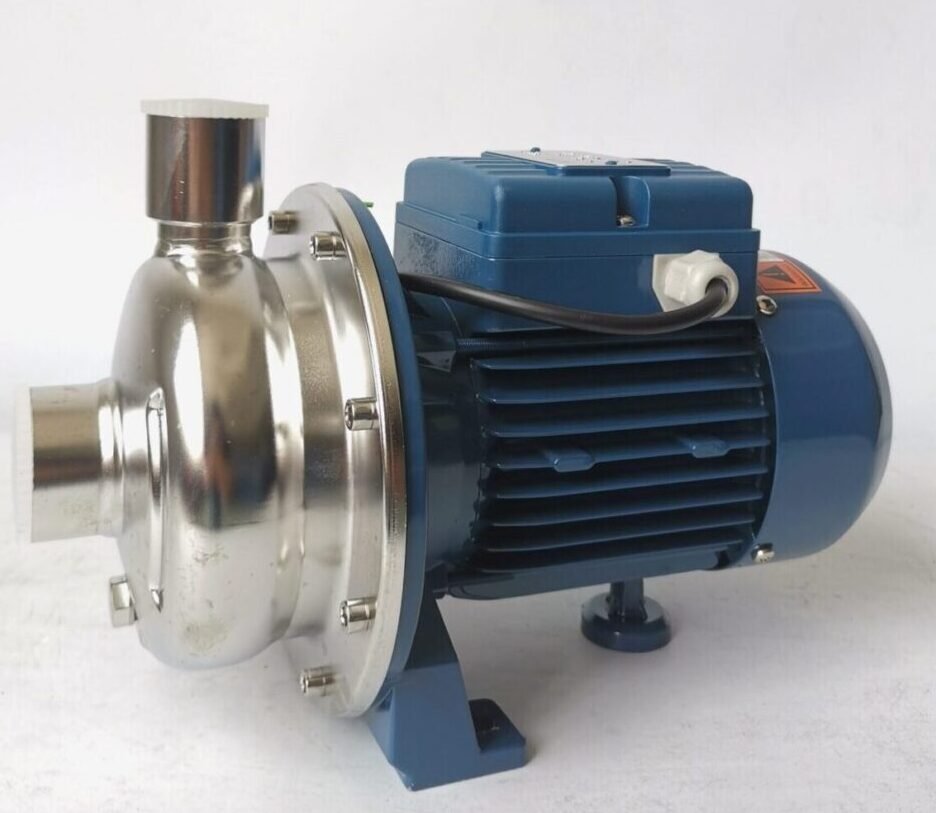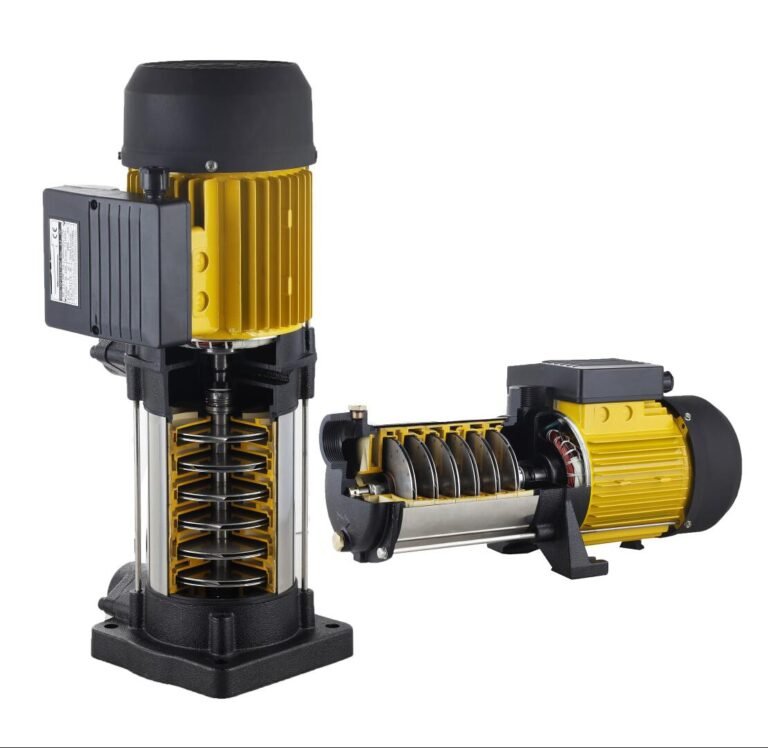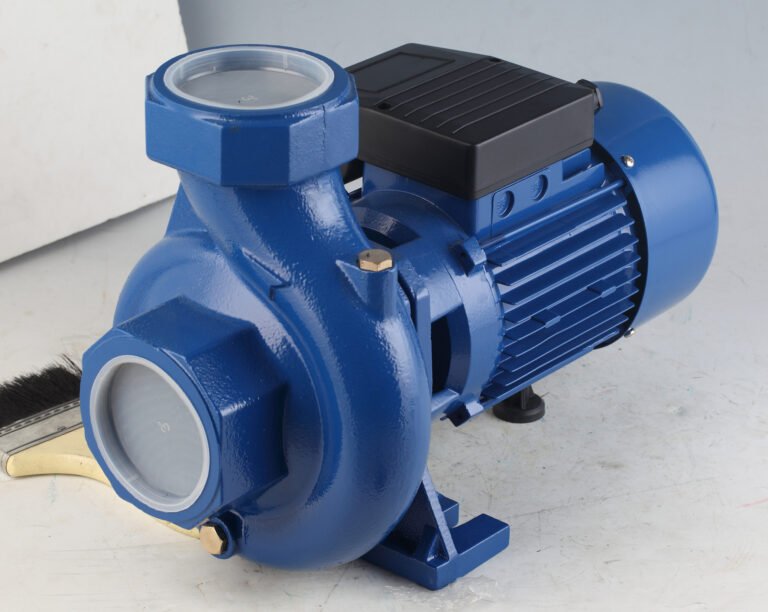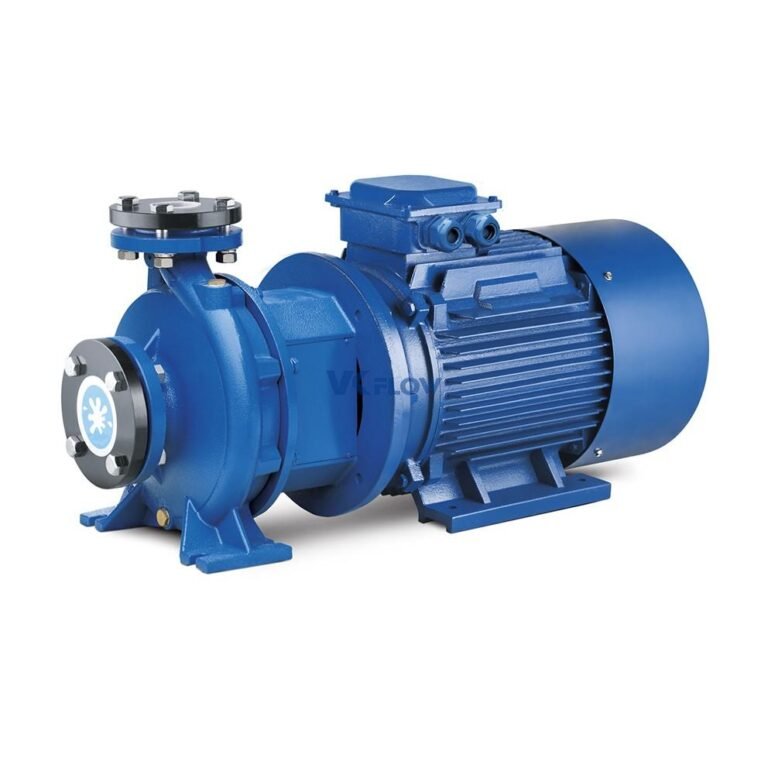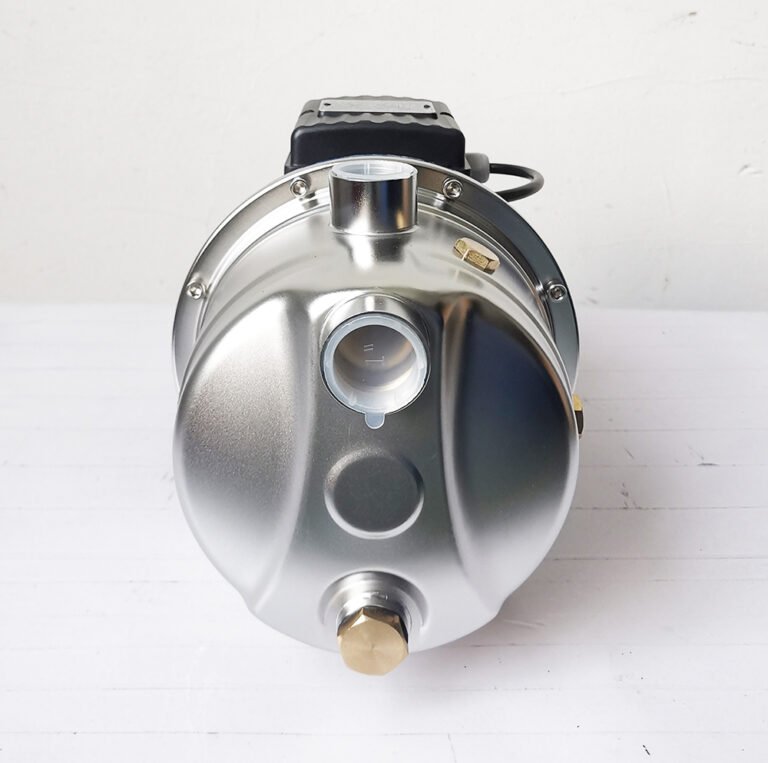Benefits of Centrifugal Pumps centrifugal pumps applications
The Centrifugal Pumps applications be found in various fields, including:
- The centrifugal pumps applications in Water Supply:
- Utilized in buildings for pumping water supply.
- Used as boosters and for domestic water supplies.
- The centrifugal pumps applications in Handling Fluids:
- Designed to pump slurries and sewage.
- Fire Protection and HVAC:
- Employed in fire protection systems.
- Used for cooling and heating applications.
- Beverage Industry:
- Transferring bottled water, juice, and other beverages.
- Dairy Industry:
- Transferring dairy products such as buttermilk, milk, and flavored milk.
- Industrial Applications:
- Widely used across manufacturing, industrial, chemical, food production, pharmaceutical, and aerospace industries.
- Utilized for refrigerants and cryogenics.
- Oil and Energy Sector:
- Pumping crude oil, mud, and slurry.
- Used in power generation plants and refineries.
- Metering Applications:
- Serving as metering pumps for precise volume pumping.
- Used in treating various types of water (wastewater, drinking water, swimming pool water, and boiler water).
- Process Applications:
- Employed in processes requiring fluid metering, extreme high pressures, or where the sealless nature of the pump is beneficial.
- Pharmaceutical and Cosmetics:
- Used for transferring lactose, glucose, and other drugs and personal care products of medium viscosity.
- HVAC Systems:
- Circulator pumps for ventilation, heating, and air conditioning.
- Chemical Handling:
- Magnetic drive pumps used where chemicals and hydrocarbons are handled, with no permitted leakage.
- Cryogenic Applications:
- Cryogenic centrifugal pumps used for liquid natural gas and coolants.

Benefits of Centrifugal Pumps Application:
Centrifugal pumps offer various benefits, including:
- Reduced Friction:
- Minimized friction within the pump.
- Magnetic Coupling:
- Magnetic coupling prevents overloading and pump damage.
- Corrosion Resistance:
- Ability to transfer different types of fluids, even highly corrosive ones.
- Long service life even with extreme usage.
- Excellent resistance to corrosive materials.
- Energy Efficiency:
- High energy efficiency compared to other pumping technologies.
- Reduced operational costs over the pump’s lifespan.
- Smooth Flow:
- Centrifugal pumps provide a consistent flow without pulsation.
- Proven Reliability:
- Ideal choice for applications where reliability is crucial.
- Evaluation of construction, design, and features ensures durability, especially in extreme conditions.
- Low Maintenance:
- Minimal routine maintenance requirements, reducing operational costs.
- Size Versatility:
- Available in a wide range of sizes to suit different needs.
- Application Versatility:
- Various configurations cater to different applications, providing versatile solutions.
- No Heat Transfer:
- Air gap between the pump chamber and motor prevents heat transfer, providing a thermal barrier.
- Leak-Free Operation:
- Absence of drive seals eliminates the risk of leaks, making them suitable for pumping hazardous liquids efficiently and safely.
- Elimination of drive seals reduces leaks, wear, friction loss, and noise, while also providing fluid separation from the pump drive.
Drawbacks of Centrifugal Pumps applications
While the above applications and Benefits of centrifugal pumps offer numerous advantages, they also come with some drawbacks, including:
- Cavitation:
- Occurs when the net positive suction head of the system is too low for the selected pump.
- Impeller Wear:
- Excessive wear of the impeller, particularly exacerbated by suspended solids.
- Corrosion:
- Corrosion inside the pump due to fluid properties.
- Surge:
- Surge or back surge in the line can occur.
- Overheating:
- Low flow may lead to overheating of the pump.
- Lack of Prime:
- Centrifugal pumps must be filled with the fluid they are supposed to pump.
- If the pump casing contains gases or vapor instead of liquid, the impeller can become gas-bound, causing the pump to stop working.
- Magnetic Drive Issues:
- Liquids containing ferrous particles can collect on the impeller magnet of centrifugal magnetic drive pumps, leading to pump failure over time.
- Some energy is lost in the coupling due to magnetic resistance, and the coupling may slip under unexpectedly heavy loads.
- Limited Suction Power:
- Centrifugal pumps rely on rotation rather than suction power to move liquids, requiring priming or submersion before operation.
- High Power Consumption:
- Centrifugal pumps may consume excessive power during operation.
Maintenance of Centrifugal Pumps applications
Maintaining centrifugal pumps involves:
- Establishing Maintenance Frequency:
- Determine the frequency for checking and repairing the pumps to ensure proper functionality.
- Set a specific time frame for regular pump inspections to verify optimal performance.
- Inspection and Replacement of Mechanical Parts:
- Conduct regular inspections, such as quarterly, routine, or annual checks.
- Inspect various components including pipe lines for leakages, bearing temperature, vibration levels, noise irregularities, stuffing box, mechanical seal, discharge pressure, and operating current.
- For annual inspections, ensure all mount points are secure, clean filters, inspect pump flanges for leaks, replace mechanical seals, inspect couplings, replace lubricating oil, and check shaft alignment.
- Lubricating the Pump:
- Change the pump’s lube oil as part of routine or scheduled maintenance, typically during annual inspections.
- Follow manufacturer’s guidelines to prevent bearing damage.
- Avoid over or under-lubricating the system, as over-greasing can cause more damage than under-greasing.
- Frequent lubrication may be necessary for pumps used daily.
- Inspection of Electric Motors:
- Conduct preventive maintenance by inspecting electric motors.
- Check insulation resistance of connections, ensure all connections are securely tightened, and inspect the motor for any signs of blockage or overheating in the vents.
Conclusion
A centrifugal pump is a machine that converts kinetic energy into fluid pressure head. which have the more Benefits of Centrifugal Pumps applications in our lift. It operates by using external power from a diesel generator or an electric motor to turn the pump impeller. The fluid enters the impeller under the influence of centrifugal force, reaching its tip and exiting the volute casing.
There are various types of centrifugal pumps, including chemical pumps, vertical pumps, and trash pumps, among others. These pumps can be classified based on flow type, the number of stages (single stage and multi-stage pumps), and the type of volute (single and double volute).
Maintaining centrifugal pumps is relatively easy, with most measures outlined in the manufacturer’s guide. With proper use and maintenance, centrifugal pumps can have a long lifespan and be cost-effective. It’s essential to select a pump that is compatible with the intended use; for example, when pumping hazardous chemicals, a chemical pump is advised.

